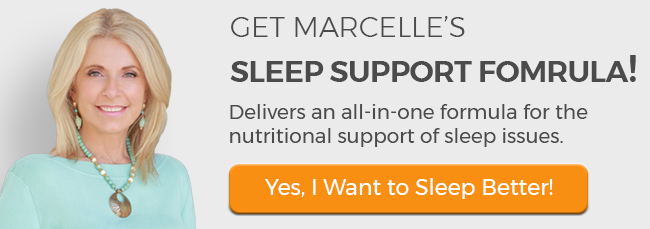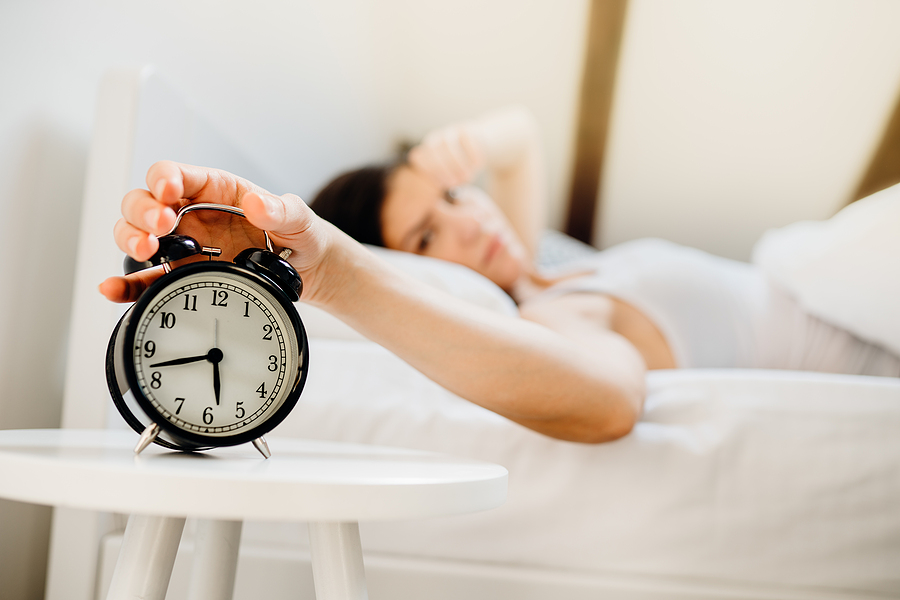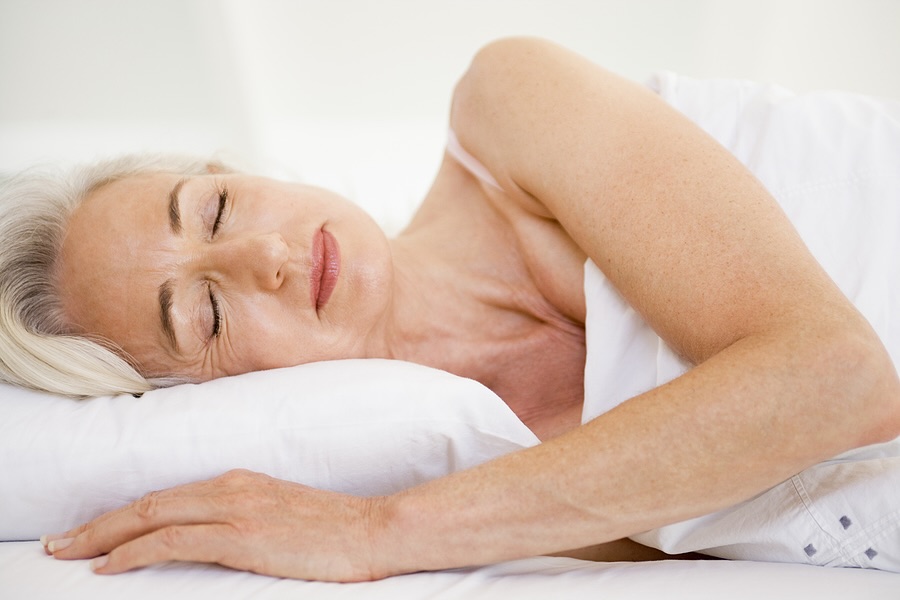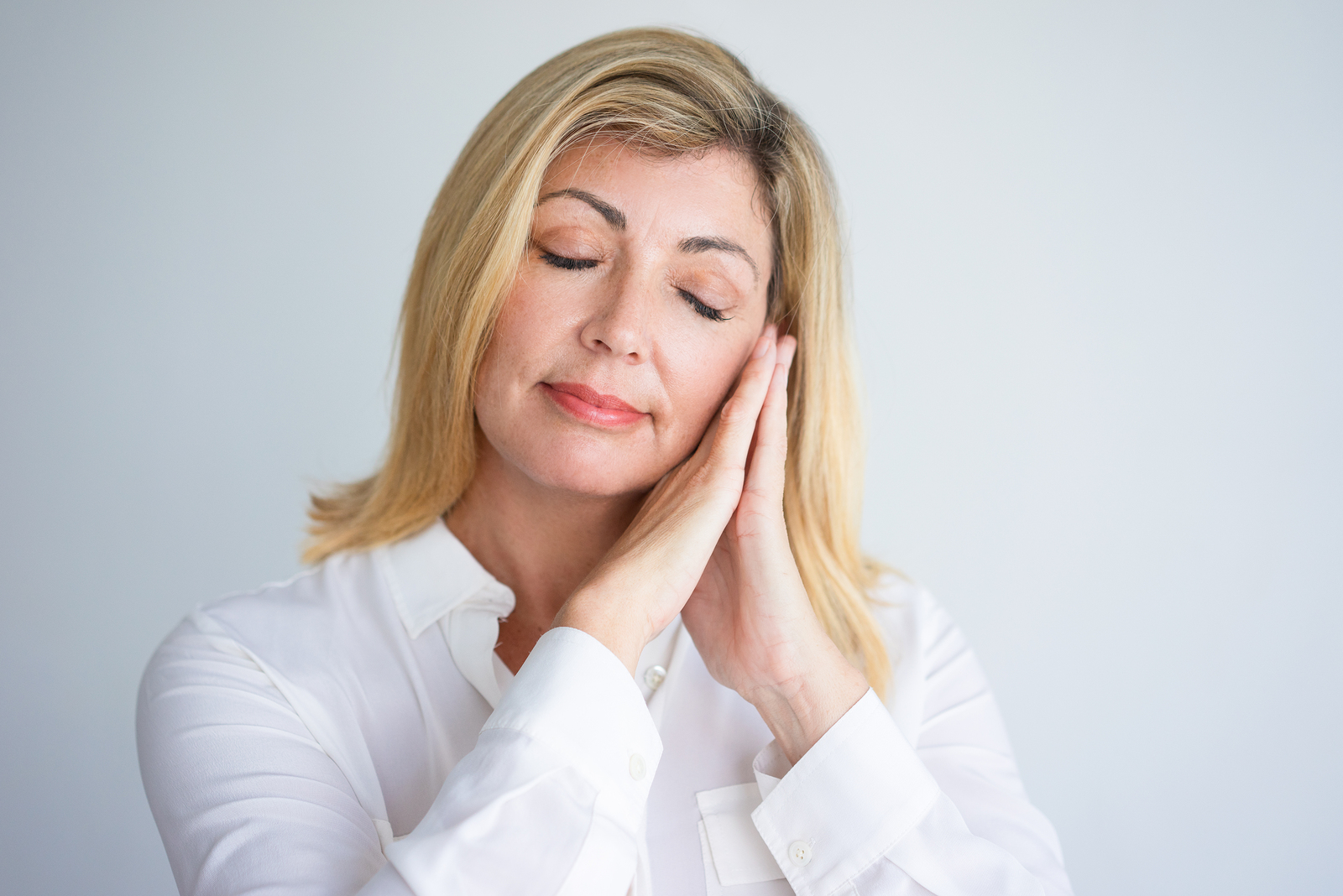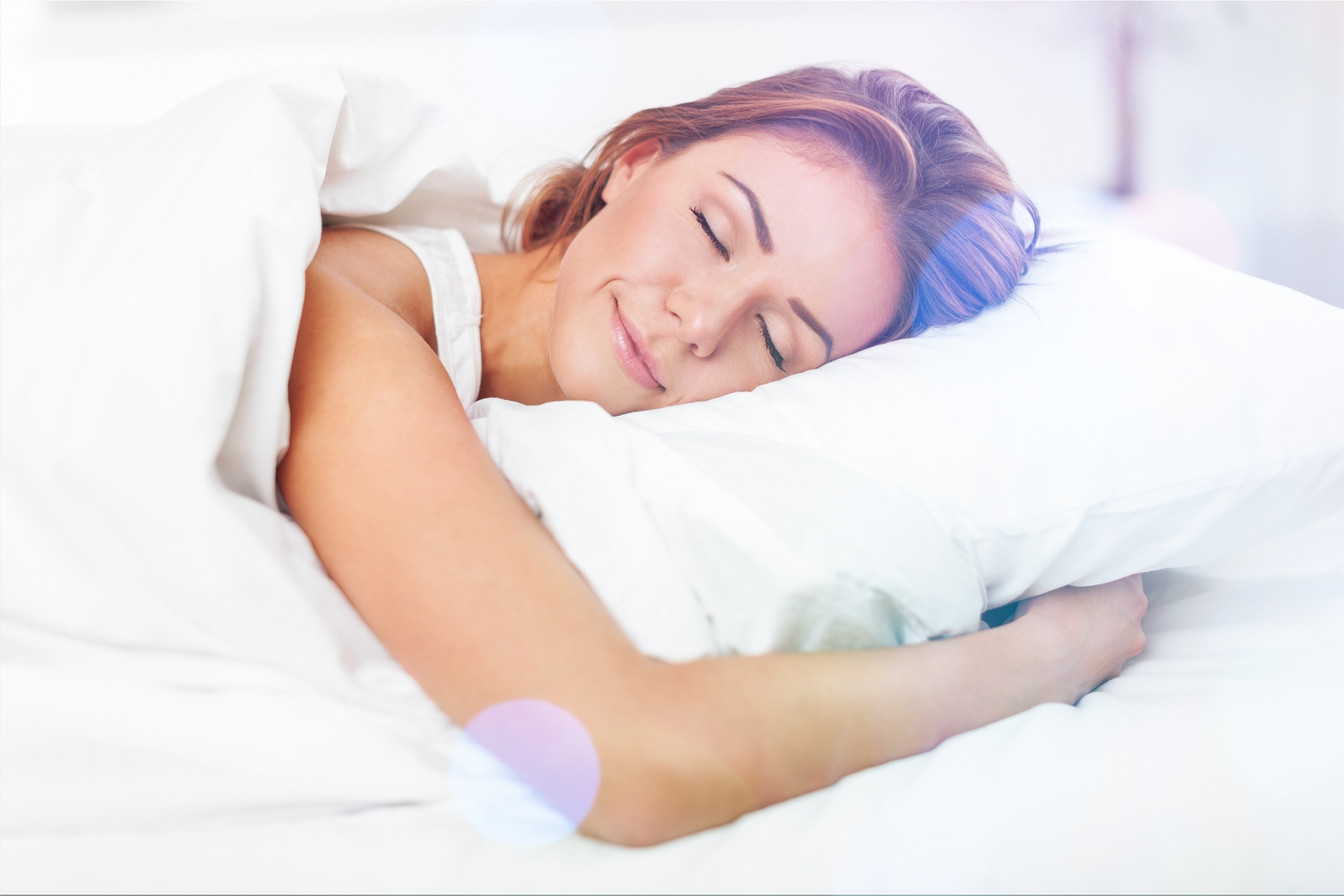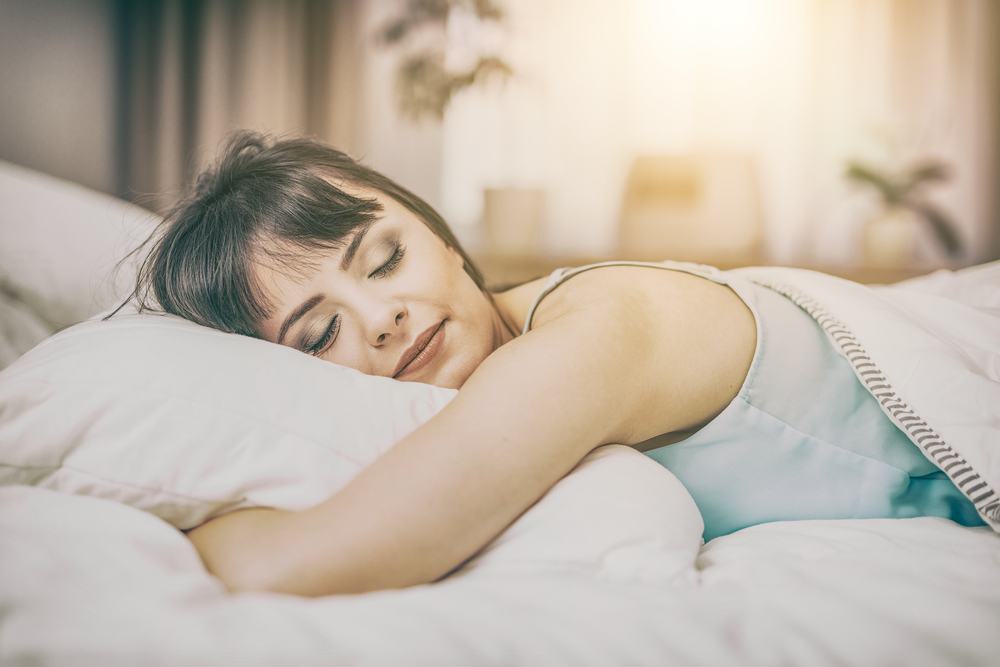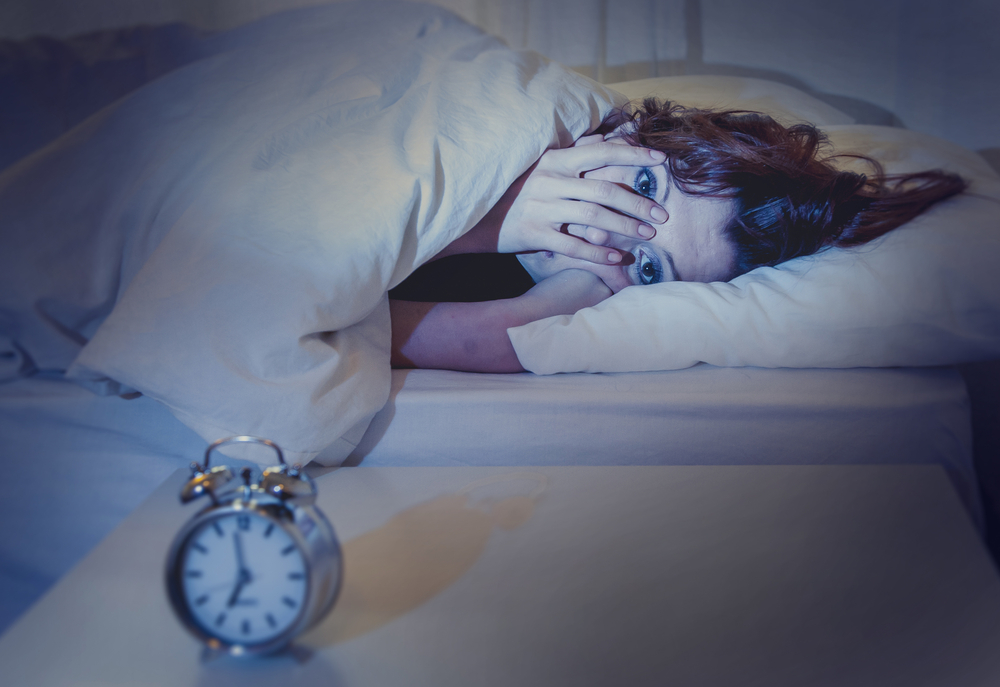It’s no secret that modern women are more stressed than they have ever been. Life is so full of distractions and information that sometimes you simply can’t process it all. Women can’t sleep due to stress and anxiety they face throughout the day, and they find themselves lying awake till the wee hours of the morning, or waking from a deep sleep suddenly, worrying about how it will all work out.
These women know how important sleep is to reducing stress. They know that sleepiness due to stress increases their anxiety. They just can’t break free from the stress-insomnia-anxiety cycle. And sometimes it goes on so long, they feel like over-the-counter or prescription sleep aids are the only answer. But they aren’t!
I have a dear friend who told me she’s been waking up in the middle of the night – sometimes as early as 2 am, and can’t get back to sleep. She tried all of my advice on building good sleep hygiene: she bought room darkening shades, didn’t eat before bed, avoided stressful conversations, and turned off all electronics an hour before trying to go to sleep. But still, she was waking up well before sunrise, wide awake and full of energy. After several weeks, she called me again and said she was giving up – she was turning to Tylenol PM to help her get back to sleep. “Stop!” I told her. “I have something better for you to try instead!”
Her story isn’t unusual. I have heard so many female friends, patients and family telling me they are so desperate to reduce stress and sleep better that they’re willing to set aside concern over side effects from Ambien, Lunesta or Tylenol PM. But these pills don’t find out what’s going on deep inside – they don’t address the root cause of the issue – and they can leave women feeling terrible when they wake up. If the idea is to sleep well to feel better, then what good are these pills if you feel lousy after using them?
I’m here to tell you that you can reset your sleep-wake cycle. You simply need to understand more about what’s behind your faulty sleep patterns – why you can’t sleep due to stress – and how natural supplements can be effective and safe in gently coaxing your body to rest.
Stimulus Overload – Is it Any Wonder Our Sleep Cycles Are Off Kilter?
We are bombarded with so much information every single day. Everywhere we turn, there are bright lights, sounds that alert us to someone’s desire to reach us, and so much more. Let me tell you about one dark night, when I was driving home to Maine from New York. It was a snowstorm, and the highway was so dark, I couldn’t see anything! I was planning to pull over and wait out the storm, but I came upon a town, and though it was a small town, there was plenty of light from the big chain stores, supermarkets, parking lots and gas stations. At that moment, the light pollution seemed like something to appreciate – it helped me continue my journey home. Later, however, I reflected upon the experience, and how our modern lifestyle impacts our sleep.
There’s no escaping our constant exposure to light and electronic pollution. While our ancestors had to wait for daylight to be productive, or communicate through slower channels, we can now send a message to anyone, anywhere, at any time of day. We can flip a switch and get to work even in the darkest hours of the night. We can press a button and have electronic entertainment at our fingertips without ever leaving the house.
We take these luxuries for granted, and never stop to think about what kind of messages they are sending to our brains. They can send a “wake up call” at sleep time, which confuses the body and sends your cycle spiraling out of control. These “conveniences” allow us to work longer hours, drive late at night, and so many other things that spur our nervous system into action, increasing our stress response.
Are you surprised to hear that the stress response and sleep rhythms are connected? You aren’t alone. Many women have never even considered the connection. But let me show you what happens to sleep when you are stressed.
What Creates Stress Induced Sleeplessness?
- The primitive part of your brain, which sends out the “fight or flight” signal, has no idea that there are different kinds of stress. It can’t make a distinction between being chased by a bear and being frustrated by a phone conversation. So, a traffic jam, light from your iPad screen, a stressful conversation – all of these things can invoke that stress response, sending your body into overdrive.
- Your sympathetic nervous system gets your body ready for this challenge by sending messages to several glands and organs, your adrenal glands among them.
- These adrenal glands are responsible for managing your stress response – among other roles. When under stress, your adrenal glands release hormones, such as adrenaline and cortisol.
- There is a direct link between cortisol and your circadian rhythm. Typically, cortisol is at its highest level in the morning, slowly declining throughout the day to get your body ready for sleep at night. If, instead, your cortisol rises at night, your body hears a different message: wake up and stay alert!
Something that often surprises people is that there are so many things you may not consider “stressful” that spur the sympathetic nervous system into action: certain types of light, televisions, computers, tables, and cell phones are among these stress response stimuli. When your stress response is constantly elevated, your sleep cycles can be continuously off, and that’s what disrupts your sleep each night.
But just because your sleep cycle has been disrupted doesn’t mean there’s nothing you can do about it. There are ways to send a gentle reminder to your body about what time it really is. Lifestyle modifications, minerals, herbs and sleep-supporting molecules are some natural solutions to reclaiming a healthy sleep cycle.
How to Reduce Stress and Sleep Better — Naturally
As I told my friend, it’s not necessary to turn to over-the-counter options like Tylenol PM. You can use natural support to shift that cortisol curve and calm your sympathetic nervous system. Passionflower, calcium, magnesium and chamomile are herbs and minerals that can soothe your sympathetic nervous system and aid your parasympathetic nervous system. Naturally occurring molecules, like phosphatidylserine, can even out the stress response. My Sleep Support Formula contains an optimal blend of vitamins, botanicals, nutrients, and neurotransmitters designed to support high quality sleep naturally.
Can’t Sleep Due to Stress? Try My Personal Approach!
There’s no doubt our world has changed. Our responsibilities – as employees, mothers, daughters, wives, caretakers and so much more – combined with artificial lighting and digital distractions means we face almost constant, often unavoidable, stress. Is it any wonder we can’t sleep? I want to help you respond to stress differently, so your health isn’t compromised. And sleep support is essential. Sleep, after all, is one of the best tools you have to fight stress. Let’s look at how I can help:
- Tips for good sleep hygiene: Setting the scene for restful sleep is very important. Eliminate distractions early enough to calm your system before heading to bed. Turn off electronics at least one hour before you want to sleep, keep them out of the bedroom entirely, keep your room dark and cool, and avoid difficult conversations too close to bed. Try to go to bed and get up at the same time each day – even on weekends – to keep your cycle consistent.
- High-quality nutrient support. I offer a specially formulated multivitamin that contains over 100 percent of recommended daily value of 17 nutrients. My Sleep Support Formula contains ingredients like valerian, lemon balm, and GABA, all of which can naturally support sound sleep without adverse effects the next morning. My EPA/DHA Support contains 750 mg of each of these omega-3 fatty acids that can also help you sleep better. Together, these three supplements make up my Sleepless Adrenal Program, which has been used with great success by patients in my practice.
I am often frustrated, as are many of my functional medicine colleagues, with the stress, toxins and electronic stimuli that surround us in the modern world. Getting sound and restful sleep is the most natural way to counteract the effects of these modern woes. If you can’t change anything else right now, I strongly recommend you protect your sleep. Your health is dependent on good sleep, and there are so many natural sleep aids that there’s no need to turn to artificial prescriptions and over the counter sleeping pills first. Give these natural solutions a try, and drift off to dreamland.



